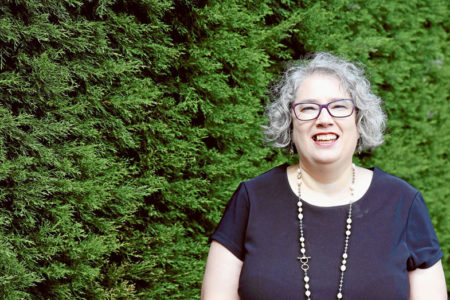Several years ago, I overheard my young daughter’s Barbie dolls having the following conversation:
Barbie 1: ”What are you doing today?”
Barbie 2: “I’m going to a boring meeting.”
It was a salutary moment for me as I realised I had used that exact phrase – “I’m going to a boring meeting”– to describe a lot of my church activities to my young daughter. In my defence, I often phrased it this way to discourage my daughter wanting to come with me to meetings- well past her bedtime.
If you are active in the life of the Uniting Church you’ve probably been to a meeting or two. You’ve probably also been to a couple of boring meetings.
Hopefully you’ve also been to many life-giving, faith-growing, gospel-focused meetings.
I’m sorry I gave my daughter the message that meetings were boring because I think meetings, when purposeful and well-run, are an important part of the life of the church.
Why do I say this?
Meetings are one key way we gather as a community of discernment. As Christians we meet to seek the will of God for our community and in our engagement with the world.
God is known in the concrete, physical realities of our lives. We know God through the decisions we make, how we make them and what they lead to. Our discipleship is not an abstract concept, it is real actions and ways of being in the world.
We meet because we believe most decisions that relate to the life of a faith community are best made together, through prayer, discussion, debate and decision. It is by meeting to listen, to pray and to reflect that we will be wiser. We hear more diverse ways of understanding God’s presence together.
What are some of the things that can help us do the work of discernment in meetings?
As a community of discernment, we should seek to reflect on Scripture together. We should be willing to listen carefully, to hear from contemporary scholarship and ask how Scripture is addressing us and our context.
Prayer is important to begin a meeting, but it should not start and end there.
As we prepare for a meeting each member can pray for those connected to discussions and decisions. Prayer should then weave its way through the meeting with pauses to pray anew.
As the meeting ends we give thanks and commit the next steps to God. We pray to open ourselves to God, and God’s desire for the world.
As we get to know the people we meet with, we are often better able to appreciate their point of view, the circumstances that have shaped their worldview, the joys and challenges of their daily life that impact on their behaviour in meetings.
The need to know each other and be a community of prayer and reflection is why the Manual for Meetings advises devoting generous amounts of time to worship and community building.
Discernment is helped when we are active, generous and curious listeners.
This means we listen carefully, fully present, paying attention to the speaker, listening to the silences. We are generous and curious about why people say what they say, especially when we disagree with the speaker.
When we listen with curiosity we ask questions about how and why people hold a particular point of view rather than rushing to judge their understanding.
When we speak in meetings we should aim for speech that is on topic, truthful and generous, particularly towards those who don’t agree with us.
There will often be voices missing from a meeting that are vital to the discussion or decision. Discernment can be aided by noticing those absent voices and finding ways to hear from them.
Finally, it is crucial in discernment to trust that the Holy Spirit is present, seeking to guide us and open up to us God’s strange ways in the world.
Meeting together as Christians to discern God’s will requires us to be active listens for the Spirit and willing followers of the Spirit’s leading.



